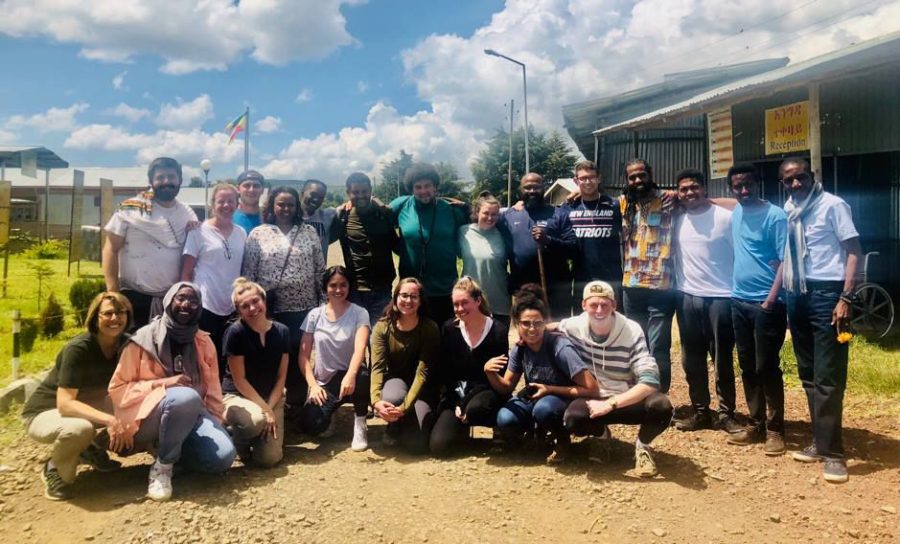Villanova Student Production Premieres in Philadelphia
Courtesy of carryingtomorrow.com
Villanova Student Production Premieres in Philadelphia
April 30, 2019
As the large crowd hurried into its seats at the industrial style venue, the program began with a Q&A discussing maternal mortality rates within Ethiopia. This past Friday at the 2300 Arena in Philadelphia, the Villanova Social Justice Documentary program premiered its film, Carrying Tomorrow, which highlights one of the most pressing medical issues within Ethiopia: childbirth fatalities. The team of Villanova students, led by Hezekiah Lewis, a local filmmaker, activist, and professor, travelled to Ethiopia in the fall of 2018. For two weeks they interviewed and shadowed the surgeons, mothers, and families that have personally experienced the detrimental consequences of inaccessible medical care within remote communities. After spending numerous days gathering information on this issue, the team returned to the States determined to create their own production company, Caged Bird Films, which was inspired by the Maya Angelou poem, “I Know Why The Caged Bird Sings.”
Childbirth not only threatens the lives of all Ethiopian mothers, but also holds the potential to disrupt the proper functioning of their communities. Within Ethiopia, women hold much of the power in the family and in community operations. While these women control the fundamental aspects to an operational society, they are deprived of safe surgery during childbirth. Childbirth is, in most cases, an easy procedure, but without proper and timely attention, it continues to kill hundreds of women on a daily basis.
Filmed primarily at Dangila Hospital and in the homes of mothers personally affected by this medical crisis, the documentary illustrates the logistical difficulties and the maternal complications of Ethiopian women living in rural areas. The personal interviews with both the surgeons and the mothers illuminate the complex factors that contribute to the high rates of maternal mortality. Many Ethiopians traditionally equate hospitals with death and view complications during childbirth as under the will of God. The deeply imbedded cultural stigmas surrounding surgery and the lack of surgeons available to operate on these mothers restrict many women’s access to medical attention during childbirth.
While Carrying Tomorrow displays the impact of hospital stigmas and the potentially fatal consequences of these cultural perceptions, it also showcases the new opinions of the younger generations that deviate from these traditional and potent norms. Ethiopian youth are transforming these impressions into an opportunity to enact change and outreach to pregnant mothers in rural communities. While the film concludes in to shift these high maternal mortality rates into a reality of the past, it also invokes a call to action: join the mission to protect these women and children.


